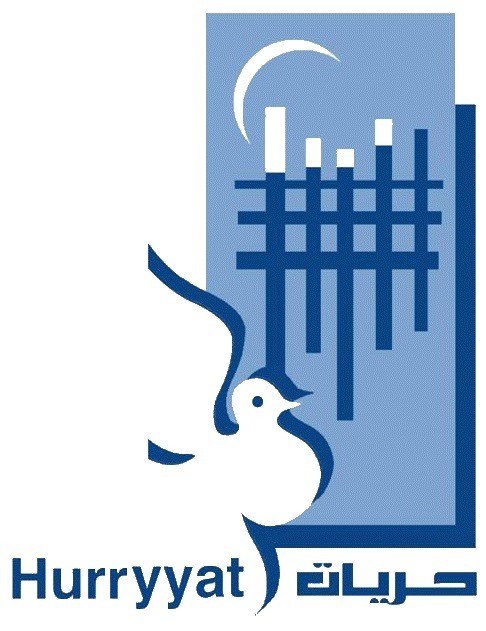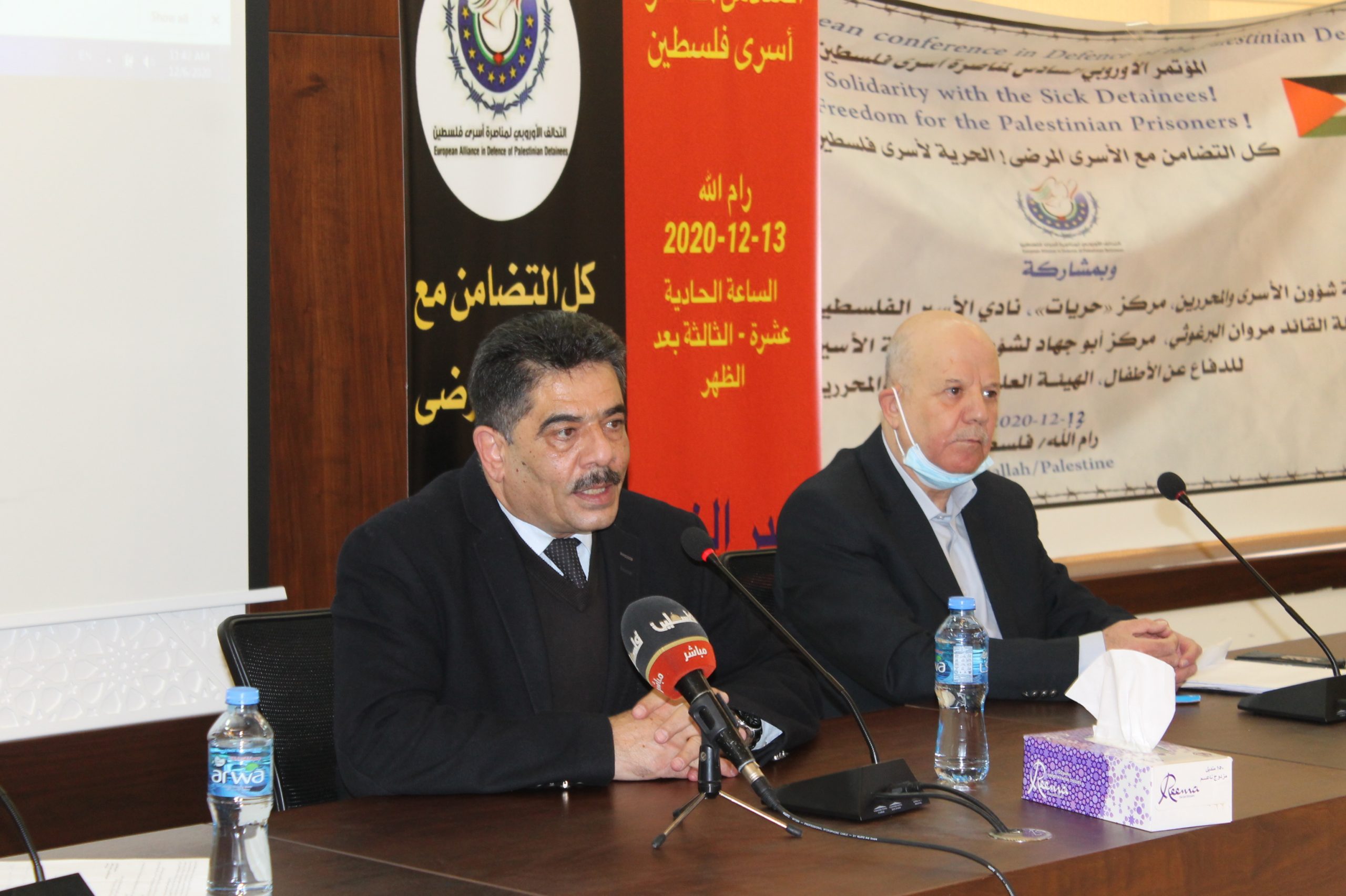Palestine abounds with many stories woven by children, men and women of their struggle over many years in the prisons of the occupation, among them the prisoner Helmy Muhammad Abed Araj, who spent 11 years of his life away from his family and was deprived of completing his studies, without bowing.
The fighter Helmy Al-Araj had a long story with the resistance and the struggle that continued even inside prisons. He is the young man against investigators and executioners who failed to subdue him because of his strength of determination and firmness of will, despite his young age at the time. Helmy said in a statement to “Meem” magazine: “I joined the Palestinian national movement at an early stage of my life. I was a student at Anabta Secondary School for Boys. I was sixteen years old when I began participating in student and mass demonstrations and various activities that resists the Israeli occupation.”
In the town of Anabta in the Tulkarm district, west of Palestine, Helmy Al-Araj was born on November 24, 1958, and received a master’s degree in political science. He is married and father of three daughters. He currently resides in Ramallah.
Al-Araj eagerly continues telling his story of resistance: “The year 1976 was a pivotal year in my life. After I joined the same year, I was arrested for the first time in my life, for five days I spent in the interrogation rooms in Tulkarm detention center. I was accused of participating in student and mass demonstrations, and during interrogation I was beat and tortured by using the Shabeh which is a torture method used by IOF against prisoners, an example of it : Shabeh on the wall: The interrogators stop the detainee so that his back is against the wall, the hands are tied back, the knees are bent at a 45 degree, and two interrogators stand on the sides to ensure that the detainee does not stand evenly, and they beat the detainee hard on his legs, and every time the detainee falls, the interrogators raise him and complete torturing him .”
In 1977, Mr. Helmy obtained his Tawjihi (high school) certificate, then joined the Faculty of Law at Damascus University, where he studied for three continuous years, to decide before the end of the third year, in 1981, to return to Palestine and his family.
I prepared myself to be arrested
Although he realized that he would be arrested immediately after his return to the Palestinian territories, Mr. Helmy Al-Araj was determined to return to his hometown: “I prepared myself for this arrest, because the Israeli intelligence was arresting the majority of the youth of the occupied territories who return from Damascus and Beirut to the Palestinian interior, In addition to knowing there are confessions about me from others who were arrested, however, I determined to return so I don’t lose my residency in the homeland due to the continuous absence, and what encouraged me also was the experience I gained in the investigation at the first and second arrests.
On his way back, he was arrested at King Hussein Bridge while he was coming from Damascus, to be taken to the Jenin Intelligence headquarters, and his new journey began with arrests and investigations after he was charged with “belonging to the Democratic Front for the Liberation of Palestine.”
Mr. Helmy Al-Araj continues his interview with “Meem” magazine: “After a series of investigations that lasted for three months, the Israeli Military Court in Nablus issued an actual prison sentence for a year and a half, which I spent in the same prison.”
Prison school
One of the methods by which the prisoner defeats his jailer, silently and steadfastly, is his attachment to the book. The life of a Palestinian is not like the life of any Arab, as it is limited to two tasks: resistance outside prisons and learning and developing capabilities inside cells.
Prisoner Helmy Al-Araj says: “I used to get up early to earn as much time as possible with books and organizational and arrest brochures. I had special interests in literature, politics, philosophy and economics.”
He continues: “I wrote many political and cultural articles that I used to publish in the (Freedom) magazine, which is a magazine for the Democratic Front, as well as in the detention cultural magazine. I was a member of the General Cultural Committee, which was issuing a general detention magazine in which prisoners wrote their articles and political analyzes, and after copying it, it was distributed to all rooms to be read and discussed, especially political analyzes and important cultural topics, in expanded sessions with the participation of all families.”
The prisoner spent the period of his arrest, which he said: “It was easy and light on me,” due to his constant and continuous preoccupation with reading books and fully engaging in organizational and detention life until his liberation from captivity on September 29, 1982.
If it was a mountain, it would have confessed
After his liberation, he was prevented from traveling and could not return to Damascus University to continue his studies at the Faculty of Law. He refused an offer to sign not to return home before three years had passed, in exchange for permission to travel. This was considered an unacceptable bargain. He accepted losing years of study at Damascus University and joining Birzeit University again.
During his detention, Al-Araj was subjected to the most horrific forms of torture without confessing anything, to the extent that lawyer “Jawad Boulos” said about him before the military court judge: “If he was a mountain after this arrest and torture, he would have confessed.”
After a journey with interrogation, torture, and moving between the prisons of the occupation, Al-Araj was released on the seventy-third day. Al-Araj says about that moment: “It is the most beautiful and most important moment in my life, as the victory over the occupation and its torturers after a long and actually brutal battle during which I was subjected to internationally prohibited torture.”
Fifth arrest
Al-Araj continued his studies after his return to Birzeit University, and specialized in sociology until he reached the fourth year, only to be arrested again for the fifth time on November 2, 1987, after a hand grenade exploded in a residence in the town of Birzeit, where one of his comrades was in the process of preparing it. It caused him great damage as he lost both his hands and one of his eyes, and he was released after spending 12 years in captivity.
Al-Araj was arrested the day after the explosion, and his interrogation continued at the Tulkurm Intelligence Center for a period of 100 days. “There I defended the justice of our cause and the inevitability of its victory, and that our state is Palestine, not Jordan, as they claimed. I confronted the investigation crews with my head held high.”
Al-Araj was released on October 10, 1995, to resume his studies at Birzeit University, where he graduated in 1996 and obtained a BA in Sociology after twenty years of trying to obtain a degree. After that, he joined a master’s program at Birzeit University and graduated from it in the year (2003).
Helmy Al-Araj is now Director of the Center for Defending Freedoms, a member of the Freedoms Committee for Reconciliation, Rapporteur of the high committee for war prisoners and detainees’ affairs, and representative of the Democratic Front in the National and Islamic Forces in the West Bank.


